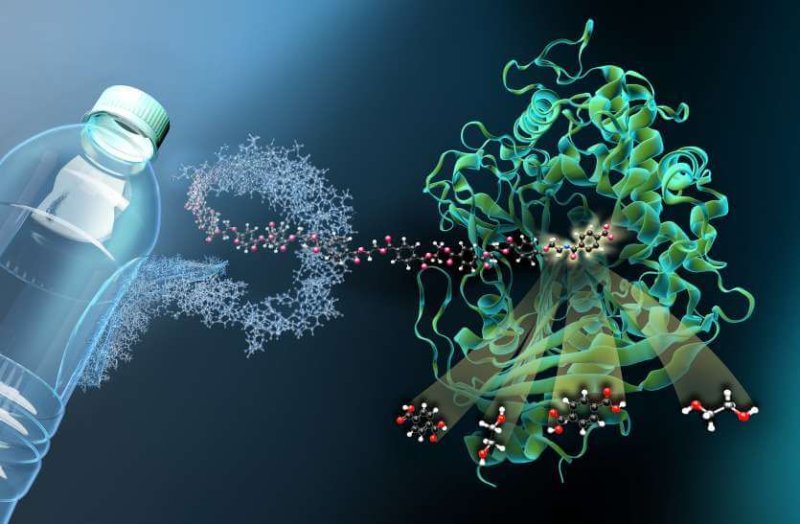A team of researchers that previously re-engineered a plastic-eating enzyme named PETase have now combined it with a second enzyme to speed up the process, according to a press release from the University of Portsmouth.
The super enzyme could have major implications for recycling polyethylene terephthalate (PET), which is the most common thermoplastic used in single-use drinks bottles, carpets, and clothing.
PET takes hundreds of years to degrade in the environment. PETase can break it down into its building blocks in a few days.
John McGeehan, lead co-author and director of the Centre for Enzyme Innovation at the University of Portsmouth, told CNN that this latest development represents a huge stop towards using enzymes to recycle plastic and reduce plastic pollution.
“We were actually quite surprised it worked so well,” said McGeehan, although he underlined that the process is “still way too slow” to be commercially viable.
He told CNN that researchers have received funding to carry out further experiments, and successful developments could mean existing PET could be recycled instead of using fossil fuels to create new plastic.
“We’re looking at huge energy savings,” said McGeehan.
The super enzyme combines PETase and MHETase. A mixture of the two breaks down PET twice as fast as PETase on its own, while connecting the two enzymes increased the speed by a further three times.































